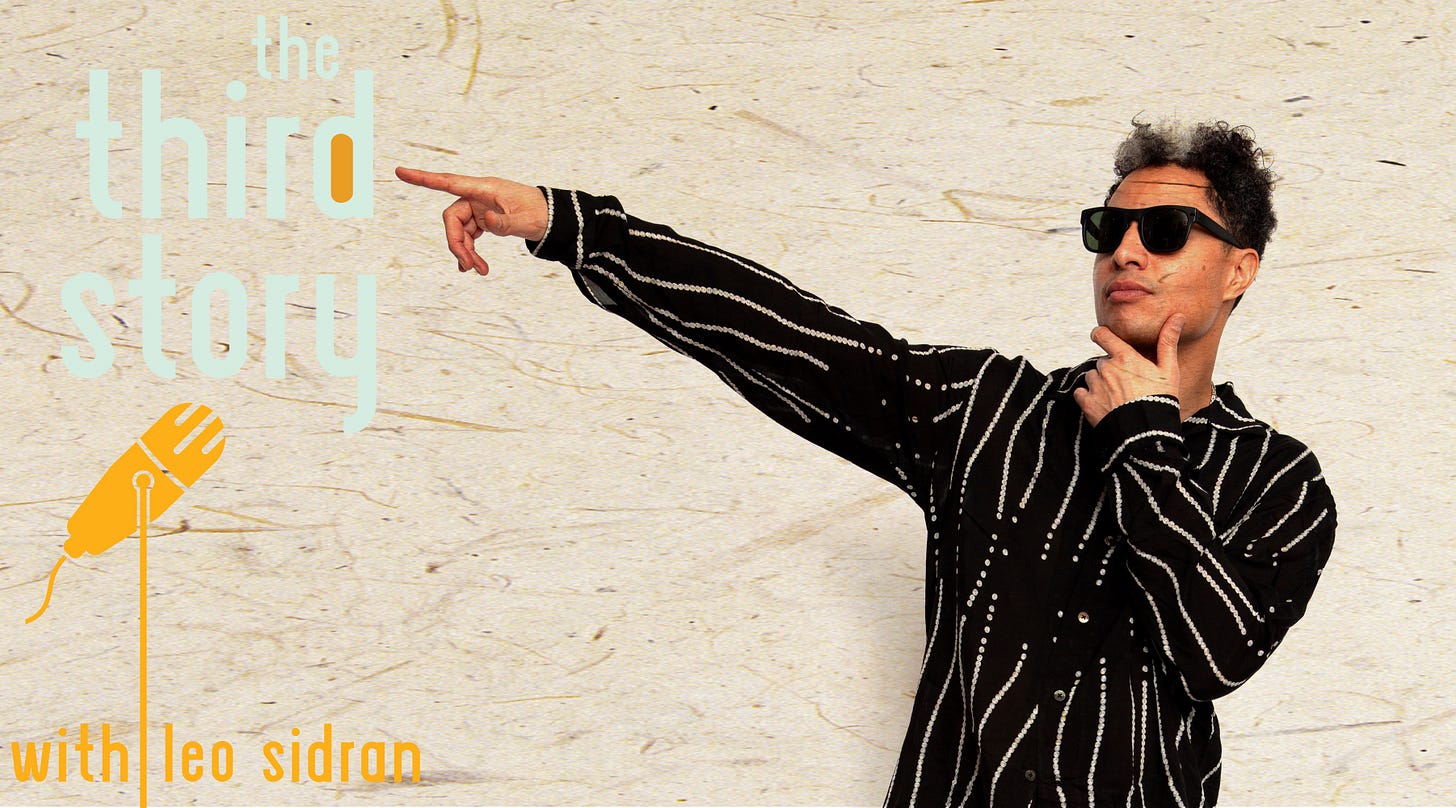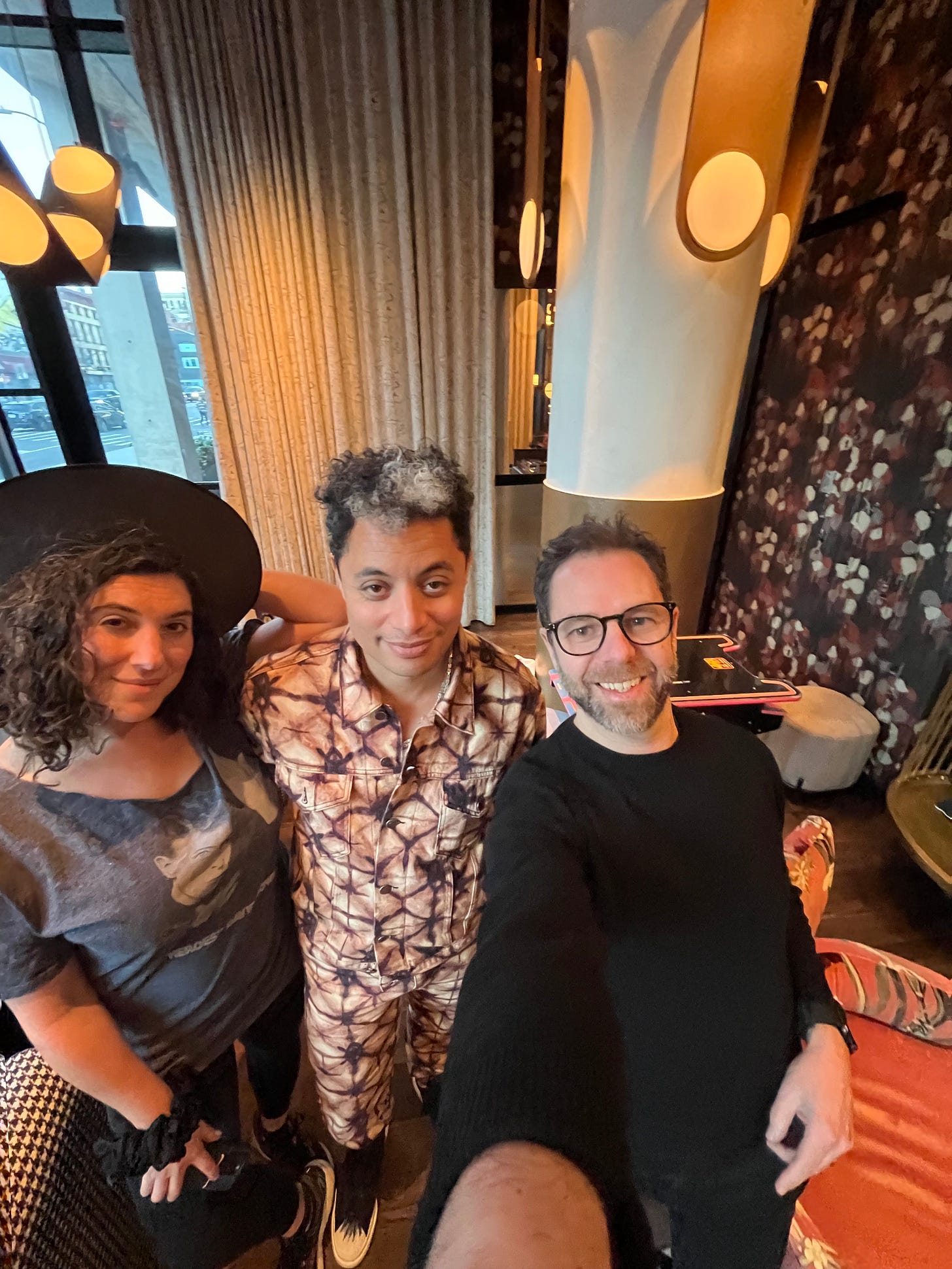Jose James: music for “Party and Politics”
Jose James on his new album 1978, the unique demands of being a jazz singer today, why he believes good art should be transformative, and the creative challenges brought on by happiness.
Singer Jose James has been a consistent and insistent musical presence ever since he released his first album, The Dreamer in 2008 on British dj Gilles Peterson’s newly formed Brownswood Recordings label. Since then he’s made a dozen albums, recorded for iconic record labels like Impulse! and Blue Note, and eventually formed his own label Rainbow Blonde with his partner (in business and in life) Taali.
The richness and depth in his baritone voice is reminiscent of classic jazz singers like Billy Eckstine, Joe Williams and Johnny Hartman. In fact, early in his career, James spent time performing with McCoy Tyner - together they revisited the repertoire from the legendary John Coltrane and Johnny Hartman album on which Tyner played.
Jose was a finalist in the prestigious Thelonious Monk Competition (now the Hancock Institute), and was always drawn to the material of Billie Holiday. So there is a version of his career that looked like it was going to follow a relatively predictable path as a jazz singer.
But from the very beginning it was clear that Jose James was not going to play by any one set of rules or stay inside anyone’s lines. As early as his first recording he started establishing himself as a jazz artist for the hip hop generation.
James has done his share of moving around in his life - both artistically and physically. There are a handful of cities around the world that would be justified in claiming him as a native son. But none more so than Minneapolis where he spent the majority of his childhood, tagging along with his musician father to rehearsals, absorbing the varied musical sounds of the city.
He began to surround himself with some of the most exciting and creative, genre expanding musicians and producers of the day and developed a reputation as a bandleader with great ears and a contagious enthusiasm. For example, during the time that drummer Nate Smith was in his band, Jose posted nightly videos of Smith’s solos under the tagline “the Legendary Nate Smith”. Those videos went viral and ultimately changed Smith’s career. (Incidentally Nate and I talked about this in our conversation a few years ago.)
And while Jose began to channel modern sounds into his music (he cites James Blake, Frank Ocean and Radiohead as contemporary influences) he also incorporated the work of his early heroes more deeply into his work. He has recorded tributes to Billie Holiday, Bill Withers and most recently Erykah Badu.
His approach to these tributes has helped to solidify him as a kind of soul music custodian, someone who keeps the flame lit, honors his elders and those who came before him, and establishes him as an heir to their tradition.
For Jose James, forward motion also involves revisiting what came before. So in many ways, his new record 1978 is the culmination of a lifetime spent building bridges between the past and the future. 1978 is both the year of his birth, and what he considers to be a “banner year” in music. He says he set out to make a record that sounded like it was made by Leon Ware (who produced Marvin Gaye’s I Want You) and J Dilla.
We spoke earlier this year at the Moxy Hotel on the Lower East Side in New York during Winter Jazzfest to talk about his professional and personal journey, the unique demands of being a jazz singer today, why he believes good art should be transformative, how he stays healthy, the creative challenges brought on by happiness and whether or not one needs to suffer in order to make good art.
Much of his own happiness seems to be a function of his relationship with his wife Taali who is also his business and creative partner. And while Taali was not vocal in our interview, she was a big presence in it nonetheless. She sat just off to the side, saying nothing but staying clearly engaged in the conversation. Jose would often look at her before answering, as if to say “are you sure you don’t want to answer this one?”
It seems clear to me that the Jose James project is a partnership. This kind of personal and professional setup reminded me of some other examples I’ve seen over the course of the last 10 years doing this podcast. Like Doug Wamble and Morgan James, two accomplished musicians and singers who work together closely on Morgan’s career. Or singer Stacey Kent and saxophonist Jim Tomlinson, another couple committed to a musical project. There are more, but those came to mind.
This episode is dedicated to the late saxophonist and vocoder master Casey Benjamin who passed away on March 30th at the age of 45. Casey, a brilliant and influential musician, spent much of his career at the crossroads of jazz and hip hop. I never knew him but I was always very aware of him and a big admirer of his playing.
During this conversation with Jose James, Casey’s name came up several times. Given the context of his recent passing, what was originally a set of casual commentaries about Benjamin’s dedication to music and community was transformed into a tribute to him and I am heartened by how much admiration Jose and Taali had for their friend.




